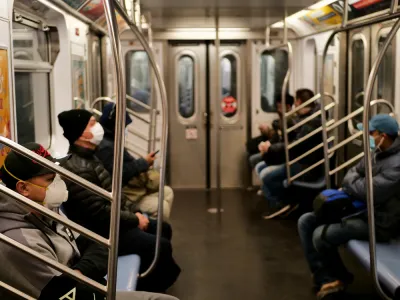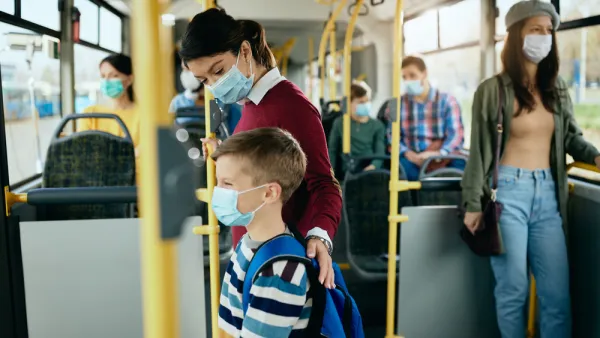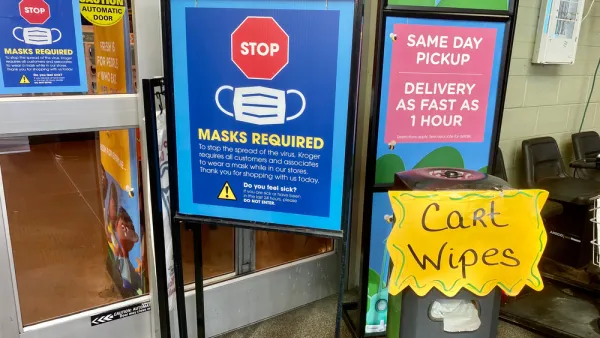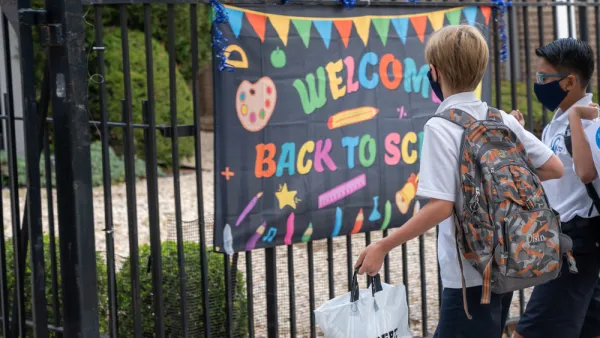Travelers will be required to properly wear a face mask when riding all forms of public transportation, e.g., ride-share, bus, train, ferry, or plane. The rule applies to transportation hubs and boarding platforms. Not just any face-covering will do.

The Centers for Disease Control and Prevention (CDC) is back! On Saturday, the nation's health protection agency released a sweeping order to implement the second of President Joe Biden's two mask mandate executive orders designed to reduce the spread of COVID-19, responsible for the death of over 438,000 Americans since Jan. 21, 2020, according to the CDC.
Today’s order from CDC is part of a comprehensive, science-driven, U.S. government response to the COVID-19 pandemic. One component of the whole-of-government response is taking actions related to reducing virus spread through travel. Transmission of the virus through travel has led to—and continues to lead to—interstate and international spread of the virus.
"The CDC tried to push a mask mandate in public transportation during Donald Trump’s administration but was blocked from doing so and instead only issued a recommendation that all travelers wear masks," reports Daniel Politi for Slate.
Although airlines and most public transportation system already require masks, the CDC order means it will be easier to enforce the rules because those who refuse to wear one will be violating federal law.
Although criminal penalties are possible, the CDC said it doesn’t “intend to rely primarily on these criminal penalties but instead strongly encourages and anticipates widespread voluntary compliance.”
"The new order states masks must completely cover a traveler's nose and mouth," reports Evan Semones for Politico. "Face shields, scarves and bandanas are not permissible forms of coverings, the CDC said."
Airlines, which largely enforced self-imposed mask regulations before Biden’s order and the new CDC rule, previously called on the Federal Aviation Administration to issue a federal mask mandate, but the agency declined to, noting that it’s not a public health agency.
The order itself is quite explicit, listing the types and attributes of mask that are acceptable, and perhaps of more interest, those that do not meet the requirements:
-
Masks worn in a way that does not cover both the mouth and nose
-
Face shields or goggles (face shields or goggles may be worn to supplement a mask that meets above required attributes)
-
Scarves, ski masks, balaclavas, or bandannas
-
Shirt or sweater collars (e.g., turtleneck collars) pulled up over the mouth and nose.
-
Masks made from loosely woven fabric or that are knitted, i.e., fabrics that let light pass through
-
Masks made from materials that are hard to breathe through (such as vinyl, plastic, or leather)
-
Masks containing slits, exhalation valves, or punctures
-
Masks that do not fit properly (large gaps, too loose or too tight)
There are exceptions to the mask rule. CDC's "Requirement for Face Masks on Public Transportation Conveyances and at Transportation Hubs" is easy to read and includes FAQs.
Related in Planetizen:
-
Biden: Masks, Not Vaccines, Are Best Defense in Near Term, Jan. 26, 2021
-
Buses and Masks, January 11, 2021
-
Mask Mandates Without Enforcement Amount to Half-Measures, August 4, 2020
FULL STORY: CDC issues rule requiring travelers to wear face masks

Analysis: Cybertruck Fatality Rate Far Exceeds That of Ford Pinto
The Tesla Cybertruck was recalled seven times last year.

National Parks Layoffs Will Cause Communities to Lose Billions
Thousands of essential park workers were laid off this week, just before the busy spring break season.

Retro-silient?: America’s First “Eco-burb,” The Woodlands Turns 50
A master-planned community north of Houston offers lessons on green infrastructure and resilient design, but falls short of its founder’s lofty affordability and walkability goals.

Test News Post 1
This is a summary

Analysis: Cybertruck Fatality Rate Far Exceeds That of Ford Pinto
The Tesla Cybertruck was recalled seven times last year.

Test News Headline 46
Test for the image on the front page.
Urban Design for Planners 1: Software Tools
This six-course series explores essential urban design concepts using open source software and equips planners with the tools they need to participate fully in the urban design process.
Planning for Universal Design
Learn the tools for implementing Universal Design in planning regulations.
EMC Planning Group, Inc.
Planetizen
Planetizen
Mpact (formerly Rail~Volution)
Great Falls Development Authority, Inc.
HUDs Office of Policy Development and Research
NYU Wagner Graduate School of Public Service




























